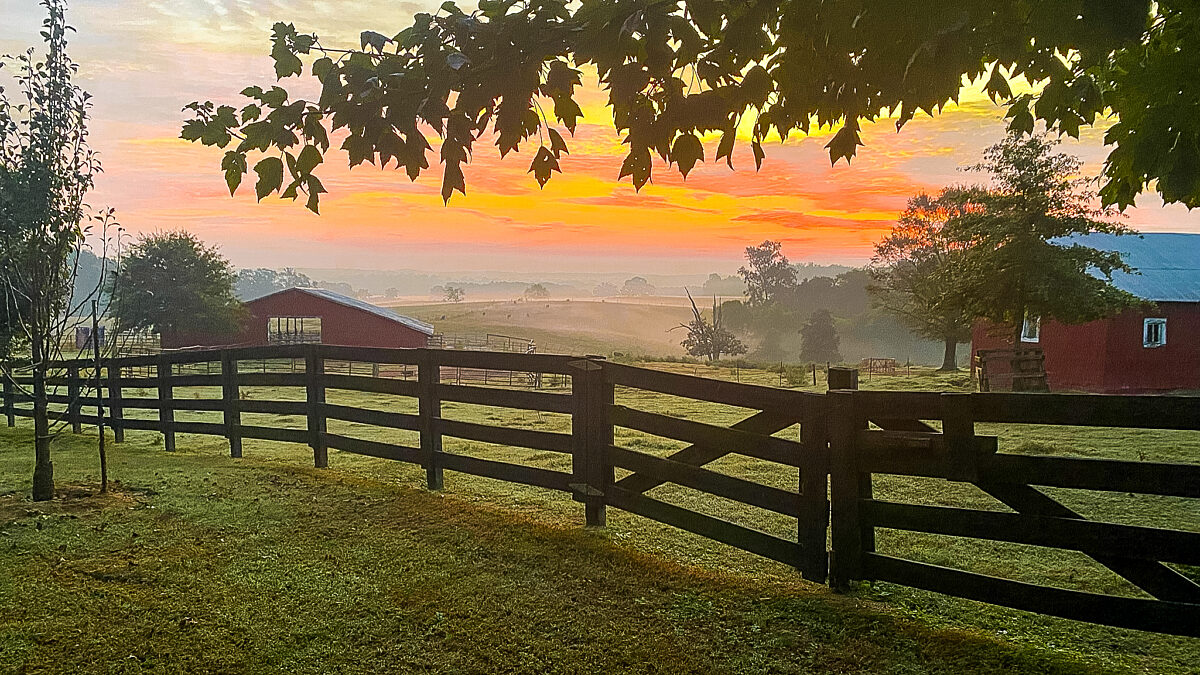Resolved for Stronger Rural Communities in 2021
TOPICS
TradeZippy Duvall
President

photo credit: AFBF Photo, Mike Tomko
Zippy Duvall
President
With each new year comes the time-honored tradition of setting resolutions. At the American Farm Bureau, we have a similar tradition as our grassroots leaders meet to set our policy resolutions and priorities for the coming year. At the conclusion of our 2021 Virtual Convention, Farm Bureau delegates from all 50 states and Puerto Rico will vote on the policies that guide our work in Washington. This year’s meeting will look a little different to ensure everyone’s health and safety, but our grassroots policy-setting remains the same. For over 100 years, we have been the national Voice of Agriculture and the trusted source of farm-related policy insights for lawmakers on both sides of the aisle.
Our farm and ranch communities are the backbone of our great nation.
Every American has a shared interest in protecting U.S. agriculture and that became even clearer when this pandemic began. Each member of Congress needs to understand how policies and regulations impact our farms and ranches, the millions of jobs we create, and the safe, sustainable food, fiber and energy we grow. Together, we can strengthen our rural communities and protect our farm businesses in 2021 and beyond.
Our farm and ranch communities are the backbone of our great nation. But if these communities are going to thrive in the days and years ahead, we need access to the same resources and essential services that our suburban and urban neighbors enjoy. We need to rebuild our rural infrastructure to incentivize more business growth, ensure our communities have consistent access to the healthcare, and finally bridge the digital divide. When essential services like medical appointments and educational classes went virtual this spring, 25% of rural Americans were still without access to reliable broadband. We have made positive steps to map and pinpoint where rural service is still lacking, and private efforts, including from state and county Farm Bureaus, to offer free public WiFi provided a lifeline to many this last year. But we still need a permanent solution to bring broadband service to every home and business: Our rural communities and businesses cannot survive offline.
The COVID-19 pandemic also spotlighted essential employees across our food system. While many Americans adjusted to working from home, men and women across the food chain from the farm to the grocery store played a vital role in keeping our nation fed throughout this crisis. Across the country, farms and ranches adapted to new CDC guidelines, providing employees with protective equipment, training and resources. With PPE shortages and costs rising, Farm Bureau worked with Congress and the Administration to ensure farms had access to the equipment and housing necessary to continue to promote safety for all employees. We have also called for farm employees to be given priority as frontline workers for the COVID-19 vaccine in the coming months.
American agriculture relies on skilled farm employees, many of whom migrate to the U.S. for seasonal work. At the start of the pandemic, farm workforce shortages were worsened by travel restrictions. We are long overdue for a guest-worker visa solution that is clear, works for all types of agriculture, and protects our current farm employees.
As farmers and ranchers look to 2021, we are eager to move forward and build new markets. We are seeing the glimmers of hope beyond this pandemic and are ready to do our part to return our communities and economy to full strength. Opening access to new international markets will be key to getting the farm economy humming again. American-grown products have led the way wherever our farmers and ranchers have a level playing field. We need to keep working toward trade agreements that break down barriers and rely on science-based guidelines.
When farmers talk about looking to the future, our vision goes beyond the next harvest. Sustainability is always a priority on the farm because we are committed to our role as caretakers, and we take great pride in the progress we’ve made, especially in the last several decades. For many of us, we’re farming the same land generations before us have, and we want to pass that legacy on to our children and grandchildren. We are eager to continue to move forward with reducing our environmental impact, but we cannot do that work alone. Access to innovation, funding for agricultural research, voluntary and market-based incentives and partnerships with food and agricultural companies will all play a role in protecting the land, air and water we all enjoy.
When the clock struck midnight on January 1, 2021, it didn’t erase all the troubles of our past year, but it did give us renewed hope as we move forward, stronger together. That is our theme for our virtual convention, which begins this weekend, and it’s a fitting theme to take us into this new year. At the American Farm Bureau, we are resolved to build on our heritage of working together across the industry, with lawmakers on Capitol Hill and each Administration. We believe that we are stronger when we help our neighbors and come together to care for our communities, and it’s in that strength that we go into the new year.
Zippy Duvall
President
Vincent “Zippy” Duvall, a poultry, cattle and hay producer from Greene County, Georgia, is the 12th president of the American Farm Bureau Federation.
Top Issues
VIEW ALL